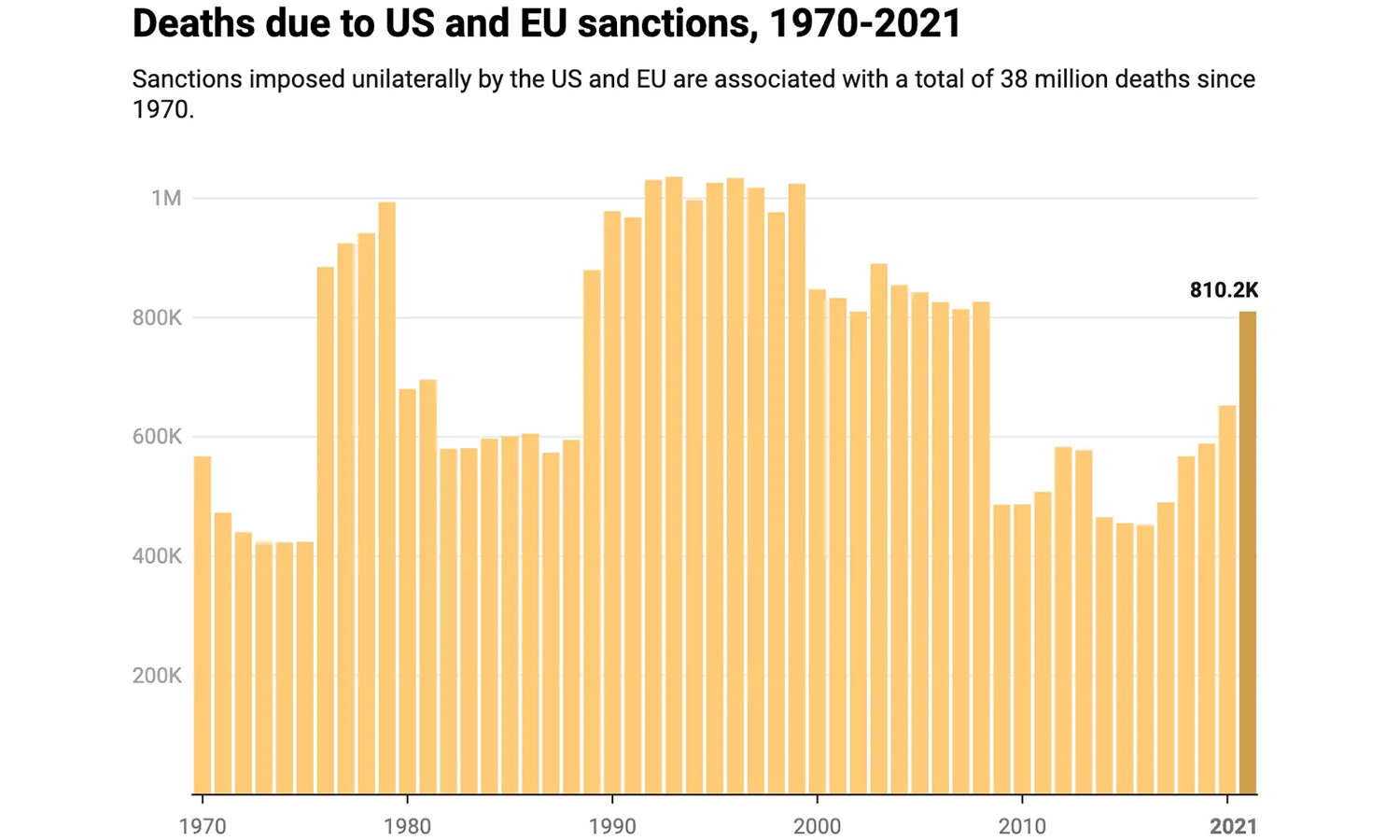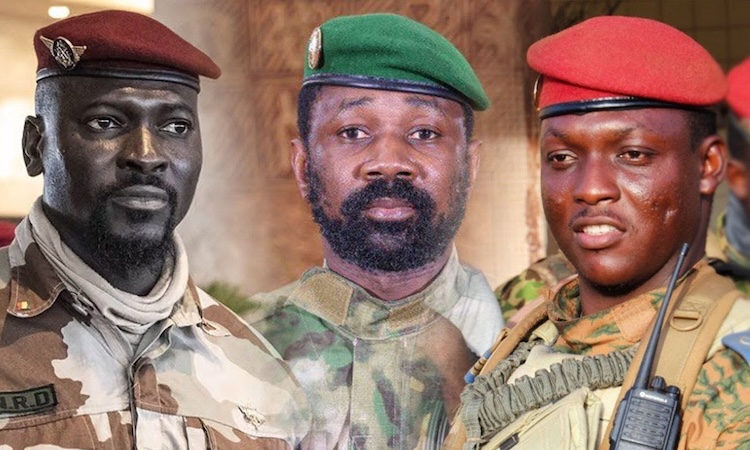The triumphant re-election of President Alexander Grigoryevich Lukashenko on 26 January, with a whopping 86 percent of the vote, was a further indication of the Belarusian leader’s wild popularity. And it was notable that in the same election the runner-up was Sergei Alexandrovich Sierankov, standing for the Communist Party of Belarus.
Predictably, Lukashenko’s victory was denounced as ‘fraudulent’ by US, British and EU imperialists. These stories were all re-run on 25 March as the president was being sworn in for his seventh term.
President Lukashenko came into office in 1994, and during his three decades in office he has been painted by western politicians and media as a cross between a lunatic and a strong-armed dictator guilty of all manner of eye-watering crimes. This depiction has been very much in the vein of the same gentry’s characterisation of Zimbabwe’s President Robert Mugabe and Libya’s Colonel Muammar Gaddafi. But what is the reality?
Lukashenko heads a state that was noted during the Soviet period both for its successful collective farms and also for its strong industrial base. Whatever else he may have said or done, President Lukashenko’s real crime in the eyes of imperialism is to have played a progressive role in helping to preserve large elements of that Soviet agricultural and industrial sectors, and even in helping to extend them.
For instance, ‘Belarus’ tractors, a legacy of the Soviet period, have become something of a global brand in recent years, and the Belarusian collective farm system has also been maintained. President Lukashenko himself was a product of that system; he was a very successful collective farm manager, and he still comes across as a genuine outdoorsman today.
(As an aside, if you ever want to see a wood chopping masterclass, look up the lumberjack Lukashenko online. He can demonstrate how to find the weak point in a log, and show how just a gentle tap in the right place will cause it to fall easily apart.)
Lukashenko is a product of the Soviet system. He’s often described as a “Soviet man” by his opponents, who appear to consider this an insult, but he himself has never shied away from the label. He regularly expresses a certain admiration for Marxism-Leninism as he understands it, even though it’s clear that he’s not a Marxist-Leninist himself.
During his inauguration speech, the president emphasised the continued industrial and technological development, despite an onslaught of western sanctions aimed at destroying Belarus’s economy and bringing down its government:
“The Belarusian state model of development has become a challenge to the system of pseudo-liberal values. And the fact that we do not retreat and do not bend frankly irritates our opponents and enemies. That is why we have been hit with a waterfall of sanctions …
“The space industry is fully developed in the country. While we started with the production of equipment for space technology, today we participate in international research programmes, launch satellites and train specialists. We have built the first nuclear power plant. With the opening of the Belarusian National Biotechnology Corporation, we have mastered technologies available only to a few countries of the world.
“We have also found our niche in such an advanced field as digital technologies. Our optics and microelectronics are in demand all over the world. We are known as the home of the largest Belaz vehicles. Every tenth tractor on the planet comes off the MTZ assembly line. And there are also MAZ vehicles, electric buses, cars, etc.”
The Belarusian leader also explained that by implementing a rural development programme, the country has not only ensured its own food security, but in many areas has become one of the world’s top ten food exporters. “This is all of us, the new Belarus, the country of workers and creators. We have become strong, significant and noticeable,” he said. (Lukashenko: Belarusian state model of development became challenge to system of pseudo-liberal values, Belarus Today, 25 March 2025)
Pro and anti-imperialist forces
There have been many pro-capitalist reforms made in Belarus over the years, but attention should be drawn towards the words of communist leader Sergei Syrankov:
“For the first time since 2001, the second place among real candidates was taken not by a liberal nationalist or any other puppet from abroad, but by a supporter of deepening socialist reforms. This shows that Belarusian society after 2020 has received the necessary vaccination against these viruses.
“Liberalism and nationalism have become unacceptable among the citizens of Belarus. It is clear that we are approaching the implementation of those provisions of our programme when the social ills will be completely eradicated from the life of our society.”
Syrankov was referring to the attempted overthrow of Lukashenko’s government in a colour revolution-type event in 2020. This coup attempt ultimately failed because Lukashenko’s government was able to mobilise the support of the state machinery and of the great bulk of the population. Belarus’s people made it clear that they did not want a government of the liberals and so-called ‘nationalists’ (ie, the pro-imperialist elements) led by west-appointed ‘celebrity wife’ Svetlana Tikhanovskaya, the Juan Guaidó of Belarus.
Even though there is genuine domestic opposition to Lukashenko, and there are people within the Belarusian working class who have disagreements with things that he and his government have done, it is clear that the masses choose to go along with Lukashenko because they understand that the most vocal ‘opposition’ leaders are tools of imperialist reaction who want to do to Belarus what has been done to Ukraine.
Attempts to use the national question continue to fail
Belarus not only retains strong elements of Soviet industry and agriculture, but it has also preserved the Soviet nationality and languages policy. Co-equal status is given to Russians and Belarusians inside the country, and the Belarusian language is supported alongside Russian, just as it was during the Soviet period.
The so-called ‘nationalists’ in the so-called ‘opposition’ (in reality bought-and-paid-for stooges of Anglo-American imperialism), never tire of complaining that Belarusian culture and language are being ‘extinguished’, hoping thereby to stir up sectarian divides among the people – and their accusations are widely repeated by western politicians and commentators.
But the truth is just the opposite. Most Belarusians speak Russian as their first and preferred language, but just as was formerly the case in the Belarusian Soviet Republic, so today in the Belarusian state, the Belarusian language and all aspects of Belarusian culture, including literature and music, are actively promoted.
To assert otherwise is an outright lie, just as the Banderite fascists in Ukraine lied when they asserted that the Soviet state was eradicating the Ukrainian language and culture. In both cases, this attempt to stir national divides and nationalist sentiment, to present one section of the population as being ‘oppressed’ by another, is a device aimed at grooming fascistic proxy forces that could eventually be used to cower the general population and overturn a sovereign and anti-imperialist government.
And we have no need to speculate about exactly what this looks like; it played out in all its hideous reality on the streets of Ukraine over the last 30 years.
Lessons of Ukraine
We can only imagine how different Ukraine would be today if its people had been able to put forward a similar figure to Lukashenko in the 1990s instead of finding themselves dominated by a string of pro-imperialist comprador gangsters. In particular, we note that President Lukashenko has remained sympathetic to the Communist party and consistently acted in coordination with it.
Whatever the ideological and political weaknesses of Belarus’s communists, they have defended the gains of the Soviet era and the sovereignty of the country.
By contrast, their sister party in Ukraine was actively kept out of power by the machinations of the local comprador oligarchy, which may well have had help from the comprador clique of Boris Yeltsin in Russia during the 1990s. During that immediate post-Soviet period, the Communist Party of Ukraine was a serious and very popular political force, and all means were used by the domestic oligarchy and its imperialist backers to defraud it of election wins and then to undermine, sideline and destroy it.
Tragically for Ukraine, neither the Communist party nor the people were equipped to put up the necessary fight that would have prevented a series of pro-imperialist ‘leaders’ being imposed on them after the fall of socialism. Whenever any leader attempted to run a middle course between aligning either with Russia or with the USA/European Union, he was ruthlessly removed by the imperialists.
The rest were outright stooges of the west who simply sought to maximise their own payday by facilitating the sale of Ukraine lock, stock and barrel to imperialist corporations, leading the country into the horrific situation in which it now finds itself.
It is thus greatly to the credit of Lukashenko and his supporters, as well as of the Belarusian communists and the wider proletariat, that they have found a way during this exceptionally difficult period to maintain the country’s sovereignty and independence and to keep a viable and relatively self-sufficient economy going.
Deepening the Union State with Russia
This has been further secured by the strengthening of the Union-State agreement with Russia, whose terms were for many years a source of friction between the two countries as Belarus tried to avoid being merely ‘absorbed’. The agreement has been steadily enforced and deepened, however, since the west-backed coup attempt in Minsk 2020 and the launch of Russia’s special military operation in Ukraine in 2022.
The two countries now have a genuinely shared defence policy, with a large contingent of Russian forces based in Belarus and the extension of Russia’s nuclear umbrella over the country, meaning that external military intervention by any of its more rabid west-backed neighbours has been rendered virtually impossible.
Belarus also has extensive trade and military agreements with China. Indeed, Chinese detachments carried out joint training exercises with the Belarusian armed forces near the Polish border in July 2024, leaving Nato war planners gnashing their teeth and sending the Polish reactionary regime into a predictable tailspin. The exercises came just a week after Belarus announced its entry into the Shanghai Cooperation Organisation (SCO).
Although the emergence of Belarus as an independent state was the result of the dissolution of the Soviet Union, and therefore something that no one in the progressive world was happy to see, the fact that it has survived as a sovereign state in close alliance with the Russian Federation is a genuinely progressive development that should be supported and applauded by all socialist and anti-imperialists.
The efforts of the Communist Party of Belarus are now focused on transforming the “left turn” that they say Lukashenko has been making into a more sustained socialist turn. And the relatively strong performance of the Communist Party of Belarus in the recent elections indicates that there is growing support for such a programme amongst the Belarusian population.















